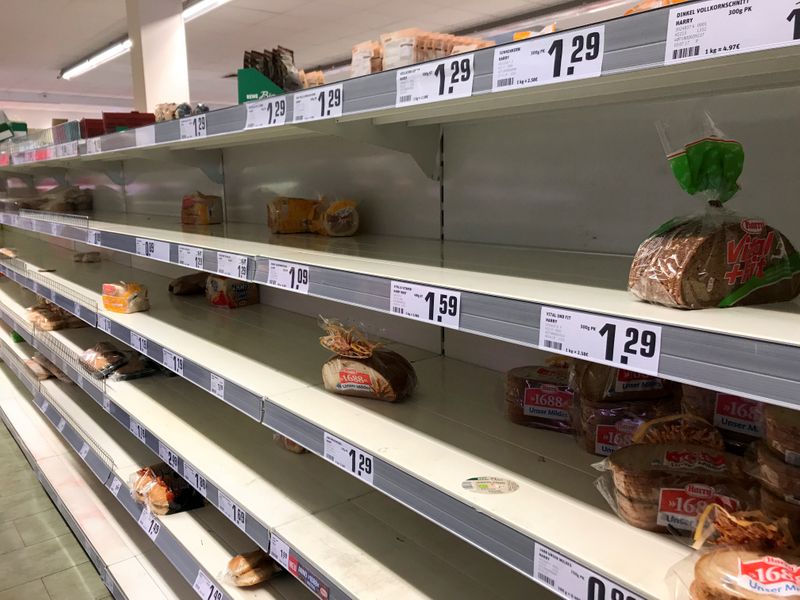BERLIN (Reuters) - A German supermarket chain called on Monday for students whose universities have shut due to the coronavirus crisis to help it refill its shelves after shoppers stockpiled many essential goods, known as "hamstering" in German.
People across Europe have been panic-buying goods from toilet rolls to paracetamol as governments apply ever more stringent restrictions on daily life to try to curb the spread of a virus sweeping across the continent.
On Sunday, British food retailers came together to warn hoarding could lead to vulnerable people being left without, while Dutch Prime Minister Mark Rutte told shoppers on Friday to stop stockpiling.
Germany's second-biggest supermarket group REWE said on Monday anybody who wanted to work in its stores could apply directly, without any complications, including students who might be looking for something to do because their universities are closed.
"We at REWE and Penny will continue to make sure that people in Germany are adequately supplied with food. Everyone can rely on this," REWE chief executive Lionel Souque said of the group's REWE supermarkets and Penny discount stores.
At one REWE store in central Berlin, the shelves had been stripped bare of toilet paper, tinned goods, long-life milk, flour and butter, while others were emptying quickly, even as store assistants hurried to refill the gaps.
The virus has been spreading rapidly in Germany and schools and nurseries across the country are closing this week until after the Easter holidays at the end of April, although residents have not yet been told to stay indoors.
The German retail association (HDE) denied rumors on Sunday that opening hours of stores could be restricted and assured shoppers that its members could meet their needs, despite the strain on logistics.
"There are enough products on the market. Nevertheless, bottlenecks for one or the other product will be temporarily unavoidable," said HDE general manager Stefan Genth.
"If all households stockpile for a longer period than usual, this can quickly overstretch the existing supply structures".
To help move more goods from warehouses to stores, Germany's federal states have relaxed a ban on Sunday driving for trucks and allowed work on Sunday for logistics and distribution.
Workers for food retailers would also get access to emergency daycare for their children when schools and nurseries close as the industry counts as part of critical infrastructure, the HDE said.
There were long lines at supermarkets in the southern German state of Bavaria even as it relaxed its usual tight limits on Sunday openings and said essential stores would be allowed to open on Sundays from midday to 6 p.m.

"There is no need for 'hamster' purchases," said Bavarian state premier Markus Soeder.